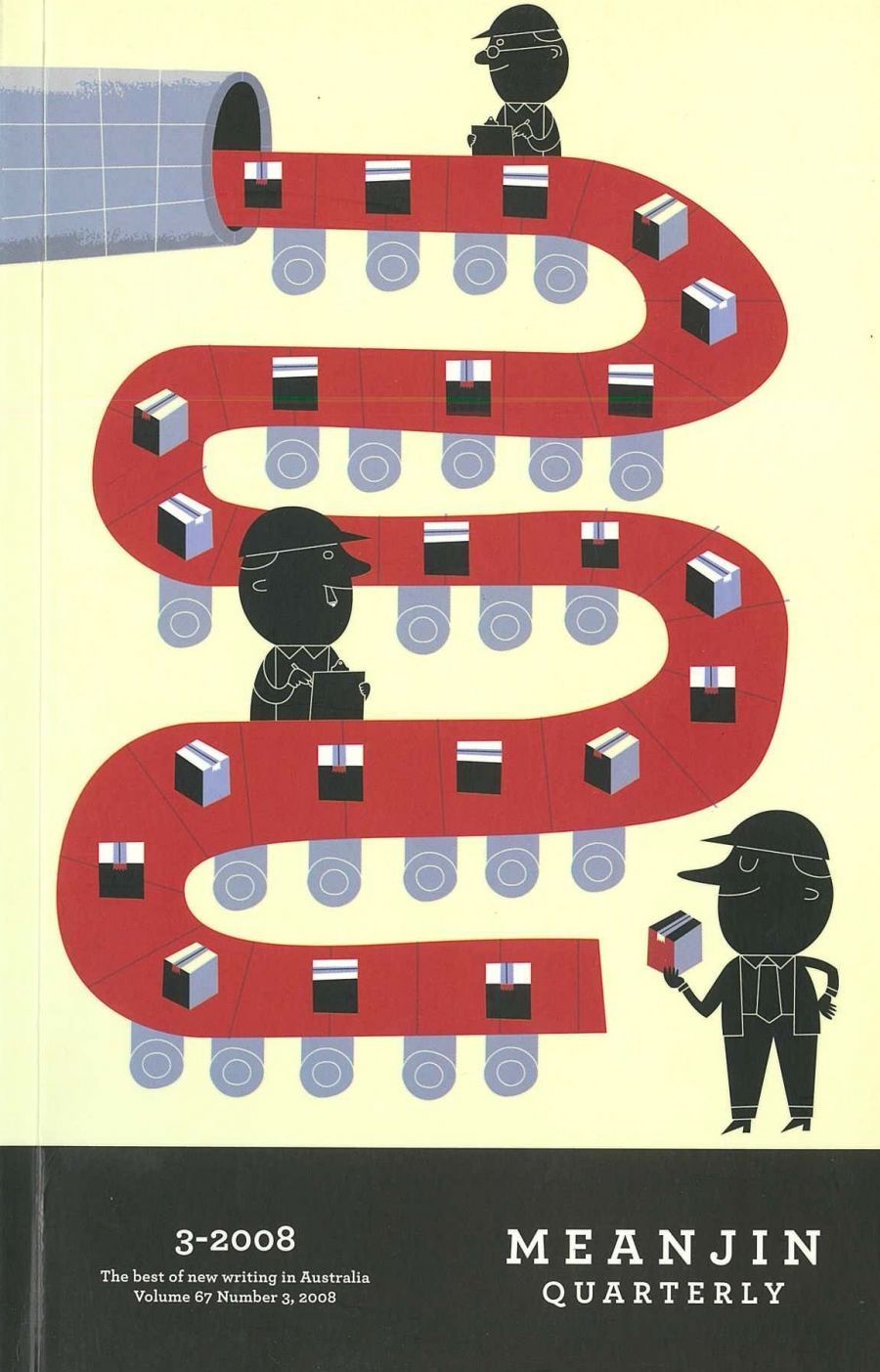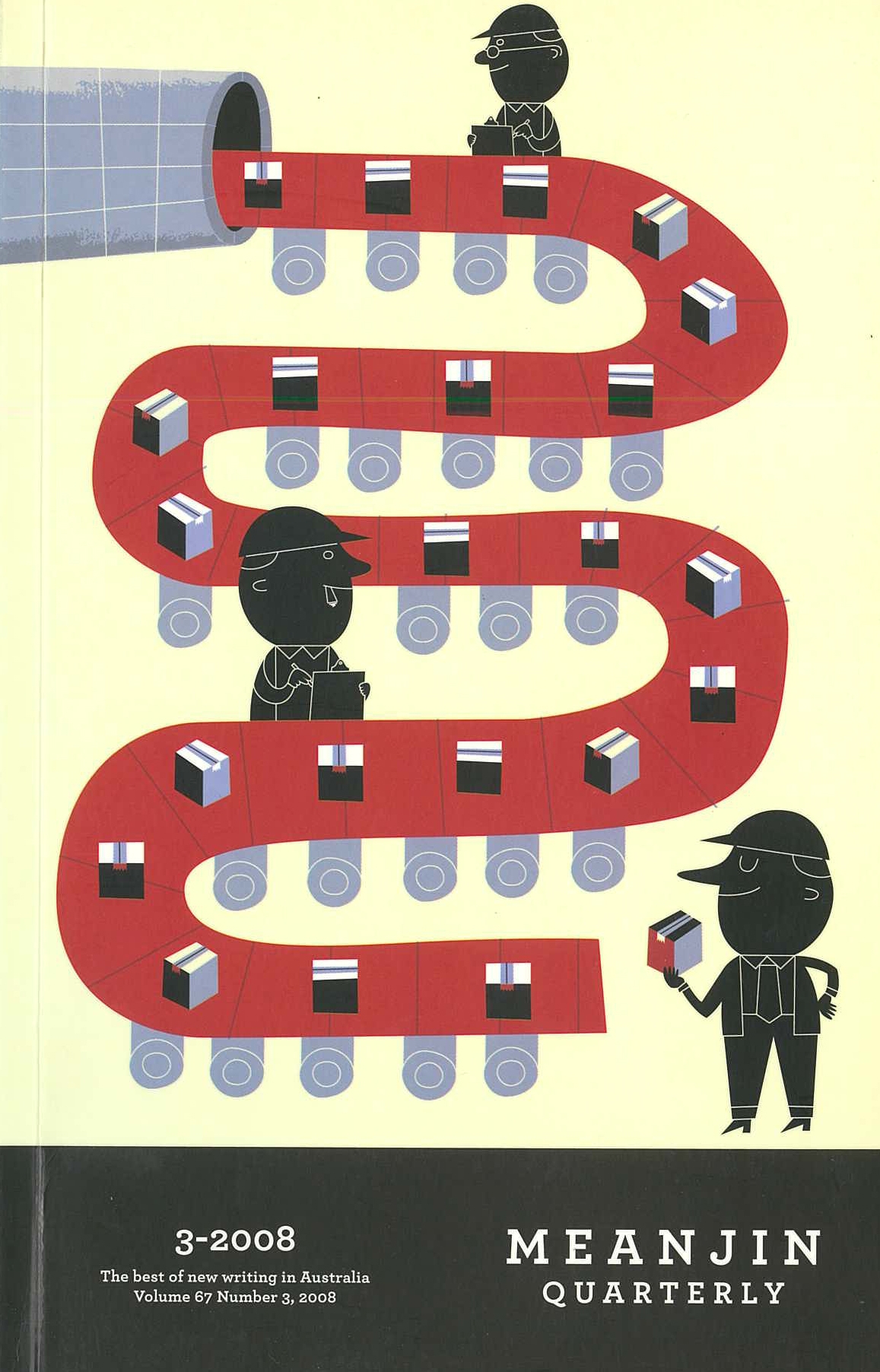
- Free Article: No
- Contents Category: Journals
- Review Article: Yes
- Online Only: No
- Custom Highlight Text:
The new Meanjin, edited by Sophie Cunningham, is exciting to behold. With its varied font, though, it runs the risk of being like Federation Square: striking to look at but difficult to negotiate. The small, faint font made this issue taxing to read. Perhaps younger readers, targeted by some of the content (such as the serialisation of a graphic history), will have less difficulty.
- Book 1 Title: Meanjin Vol. 67 No. 3
- Book 1 Biblio: MUP, $24.95 pb, 205 pp
- Book 1 Cover Small (400 x 600):

- Book 1 Cover (800 x 1200):

The content is marvellously diverse. Among the essays, John van Tiggelen writes on the masculine culture of ‘twitchers’ (ornithologists) obsessed with ticking off species. Set in Cooktown, where a rare Slaty-Backed Gull from Siberia comes to stay for ‘one more day than Captain James Cook did when repairing his ship from reef damage in 1770’, we get to know one of the locals called ‘Traj’ (short for ‘Tragedy’, his real name being John Kennedy) and the local conspiracy theories about a ‘mutant bird that landed in toxic waste at the local dump’. I also liked David Nichols’s and Mia Schoen’s personal defence of the suburbs, carried out in paintings and prose. Arguing against the city, they write: ‘We should have been content always to live in tiny brick homes, with squalid makeshift gardens, for the privilege of being close to a hotel where good bands play, so we can walk home drunk: heaven.’
The fiction is strong. Abigail Ullman’s ‘Chagall’s Wife’ is a parochial revision of Lolita. The final seduction is all the more unlikely for the Summer Heights High beginning, during which wet tampons fall from a classroom ceiling. The poetry is likewise excellent. John Kinsella’s ‘Canto of the Moths,’ in which a child’s sandpit becomes a ‘desert’ of drowning moths, is shockingly good. In ‘Three Testaments to Apollonius,’ Louis Armand asks: ‘If the future exists, why should it listen / to our private misgivings? Our furtive dialogues?’ It is a fair question for writers, but Meanjin shows that quality can provide justification.


Comments powered by CComment